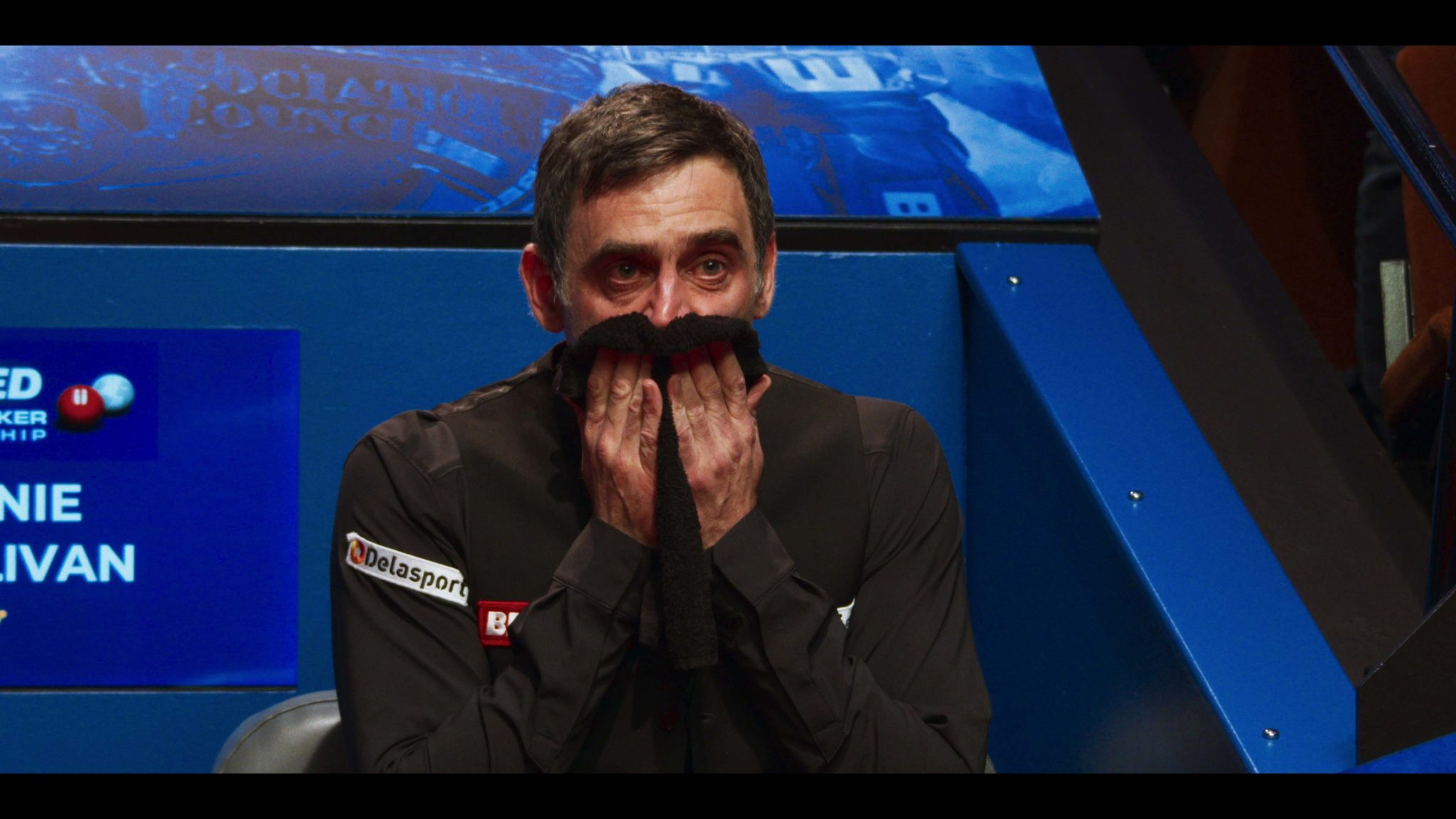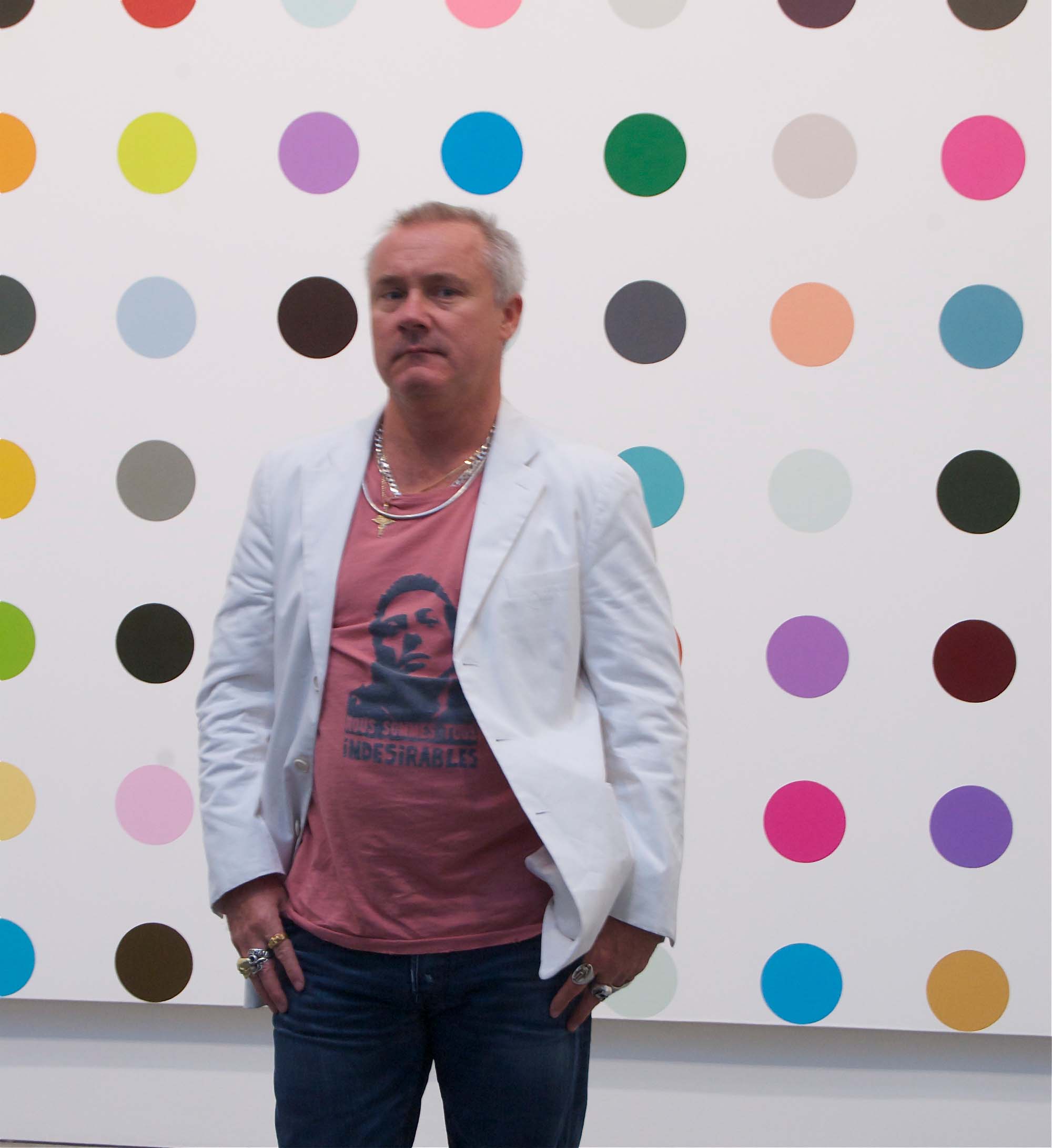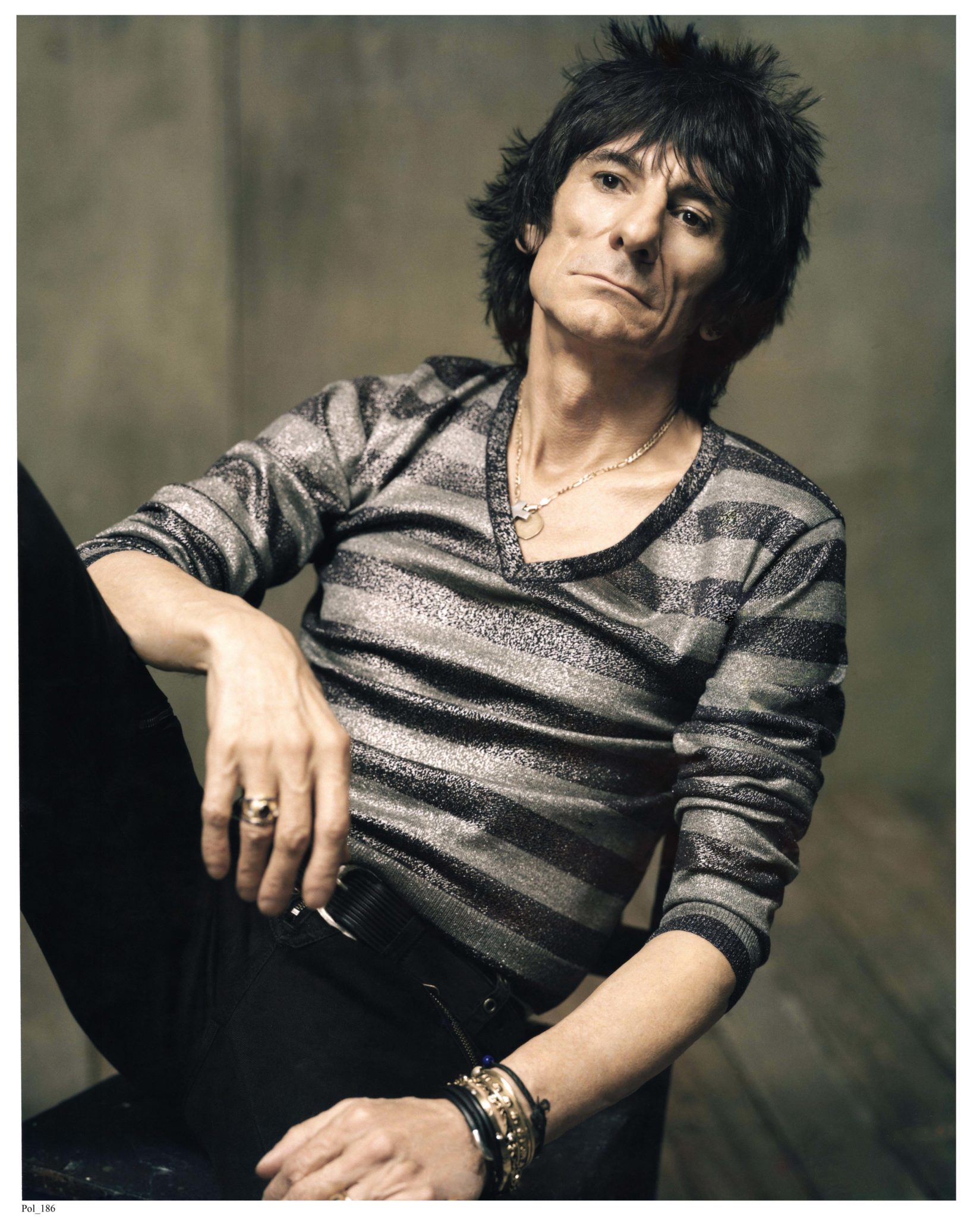- Lifestyle & Sports
- 15 Jan 24

Snooker superstar Ronnie O'Sullivan discusses his gripping new Prime Video documentary, which offers a fascinating insight into what makes him tick.
At this stage of the game, David Beckham is nearly as omnipresent as he was when winning Premier League and Champions League titles with Man Utd. When not grabbing headlines for the major coup of getting Lionel Messi to sign for his Inter Miami side, Beckham has also attracted plenty of attention for his surprisingly compelling and revealing Netflix documentary.
Now, Beckham is acting as executive producer on a doc about another English sporting icon, Prime Video’s Ronnie O’Sullivan: The Edge Of Everything, in which the titular figure - widely considered the greatest snooker player ever - invites director Sam Blair along for the ride during a typically helter-skelter 2021 season. As well as his professional ups and downs, O’Sullivan is also admirably candid about his mental health, and past struggles with addiction, as he attempts to identify the factors that make him tick.

There are also contributions from a fascinating array of friends and admirers, including fellow snooker great Stephen Hendry, Rolling Stone legend Ronnie Wood and celebrated artist Damien Hirst. So, first up: why did O’Sullivan decide to do the documentary now?
“I’ve been asked so many times to do a documentary, but once you start to delve into it, I could never quite find the person,” says O’Sullivan, who recently claimed a record-extending eighth UK Snooker Championship.
Advertisement
“I’ve looked at quite a lot of documentaries and couldn’t quite get the people that did those documentaries to do mine. So I thought, ‘Well, I’m not going to do it.’ I’ve got to have complete trust and faith that whoever was going to do this was going to do a good job. So when I met Sam, I thought, ‘Yeah, I can work with this guy’. Ross [Connolly; agent] works with Studio 99 [Beckham’s production studio], so the trust came from Ross saying to me, Don’t do these documentaries until we find the right person.’”
 Damien Hirst
Damien HirstDid O’Sullivan set any particular boundaries from the off?
“The only boundary I did set with them was that there were no boundaries.” he replies. “I said to Sam, the easiest way to do this is to assume you can come anywhere, any time, no matter what the situation is. And one day I might say to Sam, ‘Not now’, but let me make that decision. Don’t you keep coming and asking me about it, because that will annoy me. Just anywhere, I said. Even if it’s a minute before I’m going out to play, it could be the most intense moment, but I said I want the lot filmed. For me, it’s about being honest. You see a lot of documentaries where I’m assuming sports people and agents say, ‘We don’t want you filming this person an hour before they go out, or on this occasion, this guy likes to be on his own, or this girl likes to get focused.’
”I thought how can I make this documentary unique? Well, let’s give them everything that nobody else was prepared to give them, because as a sportsman, you are vulnerable. We do feel pressure, we do fall apart. And I thought great! Let’s film it! Let’s film me falling apart, and still managing to perform. Because you get a lot of these people out there that think you’ve got to be Zen, super-cool, super this... I’m everything but Zen. I fall apart regularly, you know, not every tournament because not every tournament means that much to me. But there’s probably two or three that I think, this gets me twitchy, this gets me nervous, makes me dig deep. So I knew there would be two or three tournaments and I wanted to see if I could perform well.”
NOTHING TO PROVE
Advertisement
O’Sullivan reckons his hefty list of achievements made it easier to give the crew access.
“I think it helps because I had nothing to prove,” he considers. “If I was trying to win my first World Championship, or my second one, maybe I’d have felt a lot of pressure. But having won the World Championship six times [before the documentary was filmed], and the Masters seven times - I was already the most successful snooker player statistically - I felt like there probably wasn’t much to prove. I didn’t have to impress anyone.
“If I’d done it and I didn’t win, no one was gonna judge me, I think, so it helped in that sense. It was more, let’s embrace it. Let’s see it as a challenge, because obviously it’s hard as you get older and you’ve won so many tournaments, to kind of be seduced by it. When I hadn’t won a World Championship, I was seduced by it - I just wanted to be World Champion. But once I’d won it four or five times that goes, and you start to think, ‘Well, why am I playing? What’s the reason I’m playing? I’ve kept having to find different reasons to motivate myself to play.
”So when this opportunity came along, I thought, this is a great motivation. I’m putting quite a bit of pressure on myself, I’m inviting the TV screen to capture everything that I go through. In the back of my mind, I thought there’s going to come a time when it’s finished, and they’re gonna go, ‘Right, it’s time to watch!’ Now I need to be proud of myself that I’ve given 100%. I couldn’t have done this and messed about and not committed to it. So for me, it made me really focus on my fitness and my health. It made me focus on getting my mind right.”
Notably, O’Sullivan gives access to his therapy sessions - was that in particular a big move?
”No, not really,” he says. “It was a difficult one, because Steve Peters [psychiatrist] is very authentic, he didn’t like the idea. He was probably more uncomfortable with it than I was. I’m an open book, film me, I don’t care, I’ve always had that attitude. I don’t care what you print, I don’t care what you write, I’ve got faith in my ability. I go out there and I play, so in my mind, I don’t ever feel like I’m giving an edge away, because once you step over that line to play the game, no one can help you.
”So whatever they know about me, whatever weakness they know about me, it’s OK knowing it. But when the pressure’s on and you’ve got to come out and play, I know you’re going to be feeling it and I fancy my chances to thrive in that environment. I’ve never been worried about, Oh Ronnie’s talking about this with his shrink, Ronnie is falling apart’. Because you’ll see, if anyone was that worried about how they were perceived, they would not have done what I have done and showed that side. So I never had a problem with it. But I know Steve was a little more like, ‘Should we be doing this?’
Advertisement
“We’ve worked together for 12 years, I don’t actually care what anyone thinks. It’s well documented I’ve had my ups and downs for 20 years. I’ve met you, I’ve got a bit of a handle on it. Who cares? I’m not afraid. It wasn’t like Steve was there for every match, so we had to go to his house to film a bit. We’d just talk about stuff which I have learned from Steve and how we do it and stuff like that.”
SERIAL WINNER
How has Ronnie learned to balance continually wanting to win, versus enjoying the sport?
“What I’ve learned is, if you want to be a serial winner, you can’t always love it, which is sad, really,” he considers. “You have to dig deep. I call it going into dark places. To play this game for a long time, it gets to a point where sometimes you go, you know, why am I playing? What are the reasons I’m playing snooker? I took a year out once and I missed the travelling, I missed hanging out with my friends. I missed playing sometimes, I missed meeting my running mates at different places that I used to travel to. I missed getting away from home. All those things.
’So if I’m not loving the game, there’s so many things I love that come with the game. I’m self-employed, and therefore if I want to take six months off, I can. But the buck stops with me and if I don’t perform, I have to motivate myself. There’s that pull of love and wanting to win. I’ve learned to just fine-tune it and go, ‘Well, I can’t be all about winning all the time’. Because I probably wouldn’t play - it takes too much out of me.
”So then I have to switch mindset, go into the Steve Peters mode, be focused from start to finish. In snooker, there’s a lot of momentum shifts, and you’ve got to be able to be resilient. You’re not always going to be on top. I’ve learned that snooker is about resilience, it’s not so much about the game – it’s about how do I become resilient? That’s what I’ve learned: to be a winner, you have to be resilient.”
How did it feel watching friends Damien Hirst and Ronnie Wood show their support for you in the documentary?
Advertisement
”Everyone knows how close I am to Damien, he is like a big brother to me,” acknowledges Ronnie. “I didn’t really want to ask him to be honest! I know that he gets driven mad to do lots of things. So I asked his PA if she could ask him, and he was like, ‘Yeah, I want to do it!’ Again, I knew he would like Sam, and Sam said it was brilliant to interview Damien - the way he comes across, the way he talks, and he does a lot of it with humour, a lot of metaphors. That’s why Damien’s come to watch me play a lot, because he gets it. He really does.
”And to see Ronnie, who I’ve known through Jimmy White for a long time, and Ron is a huge snooker fan. They’re both huge snooker fans. That’s why we’ve met, he was good friends with Jimmy White, spent many times around his house playing snooker. Ronnie loves it and Damien’s the same. Damien came to watch me play at the World Championships in 2008 and I said, ‘What other sports do you love?’ He said, ‘I don’t, I just love snooker, it’s the best’. So that’s why we met. He loves snooker, he came to watch me, we became friends. We’ve remained really good friends.”
 Ronnie Wood
Ronnie WoodSo how does O’Sullivan you feel about snooker today?
”I enjoy it,” he says. “I’m having to think about where do I want to play? Why am I playing? I want to play in really good tournaments. I want to play in good venues, so for me, China is the place to play. They have the resources, they have the scale to put on great events. You know, in the UK, we don’t. It’s a bit of a journey, it’s a 10-hour flight, I have to deal with the jetlag. But when I’m there, the snooker is great, the food’s great. The people are great, the tournaments are great.
”So I’m going to try and play as much in Asia as I can. It makes sense for me. I’ll still probably play the odd tournament in the UK, but I’ve just decided China’s where I want to play. That’s where the future for me is, as far as work and commercial activities go. I’ve only got so much time and I thought I might as well devote 100% of my time to China and Asia. And then when I come home, I put my feet up and relax and I get ready for the next trip to Asia.
Advertisement
It’ll be a lot of trips and it will take a lot out of me, so I’ll be coming home and putting my feet up and getting ready, because I’m not I’m not a spring chicken anymore.”
- Ronnie O’Sullivan: The Edge Of Everything is available to stream now on Prime Video.










